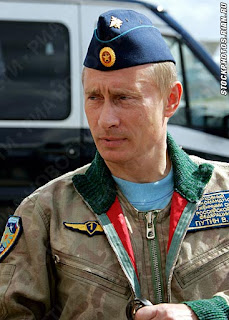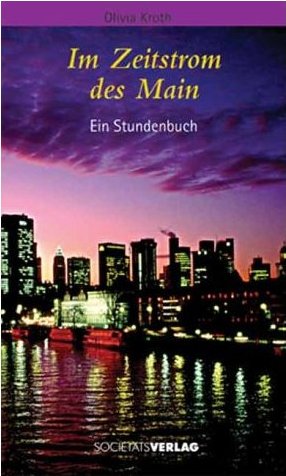Russia Today (RT): Russia – India / Russland Heute (RT): Russland – Indien
From Dostoevsky to Gorky:
This little book haven keeps the Russian spirit alive in India
Author: Dipanjan Sinha, independent Kolkata-based journalist
Von Dostojewski bis Gorki:
Dieses kleine Bücherparadies hält den russischen Geist in Indien lebendig
Autor: Dipanjan Sinha, unabhängiger Journalist aus Kalkutta
A Kolkata bookstore captures time on its shelves. As one walks inside Manisha Granthalaya near College Street, each corner is filled with nostalgia, carrying the covers of Soviet-era books, no longer in any specific order.
Eine Buchhandlung in Kalkutta fängt die Zeit in ihren Regalen ein. Wenn man Manisha Granthalaya in der Nähe der College Strasse betritt, sieht man in jeder Ecke voller Nostalgie die Umschläge von Büchern aus der Sowjetzeit, nicht mehr in einer bestimmten Reihenfolge.
There are books on politics, medicine and engineering, as well as fiction. Some are in Russian but most are translations into Bengali.
Es gibt Bücher über Politik, Medizin und Technik sowie Belletristik, einige auf Russisch, aber die meisten sind Übersetzungen ins Bengalische.
The books remain a reminder of a time when Russian literature, particularly in translation, was a part of the reading culture in the eastern India state of West Bengal.
Die Bücher bleiben eine Erinnerung an jene Zeit, als russische Literatur, insbesondere in Übersetzung, Teil der Lesekultur im ostindischen Bundesstaat Westbengalen war.
Children grew up with images of people plodding through snow, of witches and of magical forests. And as they grew up, Fyodor Dostoevsky, Nikolai Gogol, Maxim Gorky and other legends shaped their literary values.
Kinder wuchsen mit Bildern von Menschen auf, die durch den Schnee stapften, von Hexen und von magischen Wäldern. Und als sie heranwuchsen, prägten Fjodor Dostojewski, Nikolai Gogol, Maxim Gorki und andere Legenden ihre literarischen Werte.
While these books were essential in the homes of activists of different left parties when the Left Front was in power in West Bengal, from 1977 to 2011, even people with no connection to political activism used to buy Russian literature, says Joy Banerjee, deputy manager at Manisha.
Während diese Bücher in den Häusern von Aktivisten verschiedener linker Parteien unverzichtbar waren, als die Linksfront von 1977 bis 2011 in Westbengalen an der Macht war, kauften sogar Menschen ohne Verbindung zum politischen Aktivismus russische Literatur, sagt Joy Banerjee, die stellvertretende Leiterin der Buchhandlung Manisha.
The bookstore’s launch, in 1964, was a grand affair attended by intellectual stalwarts of the state. The store’s logo was designed by filmmaker Satyajit Ray, and painter Jamini Roy gifted it his artwork.
Die Eröffnung der Buchhandlung im Jahr 1964 war eine große Veranstaltung, an der intellektuelle Vertreter des Staates teilnahmen. Das Logo des Ladens wurde vom Filmemacher Satyajit Ray entworfen und der Maler Jamini Roy schenkte ihm seine Kunstwerke.
In a few years, there were 18 outlets in West Bengal but it was still difficult to manage the overwhelming demand.
Innerhalb weniger Jahre gab es in Westbengalen 18 Filialen, aber es war immer noch schwierig, die überwältigende Nachfrage zu bewältigen.
Kalkutta:
“Children’s literature and the classics were the most popular,” Banerjee says. “But other books on society and politics were also widely read. Even now we have people asking if such-and-such books are available.”
„Am beliebtesten waren Kinderliteratur und Klassiker“, sagt Banerjee. „Aber auch andere Bücher über Gesellschaft und Politik wurden viel gelesen. Sogar jetzt noch fragen uns Leute, ob es diese oder jene Bücher gibt.“
Kalkutta:
People attribute this popularity to several important factors: the paper quality was superior to that of locally-printed books, the lavish artwork each book contained, and the low prices. It was like reading a 10 rupee book for one rupee. “That kind of expenditure for a single book remains unmatched in history,” says Banerjee.
Die Leute führen diese Beliebtheit auf mehrere wichtige Faktoren zurück: Die Papierqualität war besser als die der lokal gedruckten Bücher, die aufwendigen Kunstwerke, die jedes Buch enthielt, und die niedrigen Preise. Es war, als würde man für eine Rupie ein 10-Rupien-Buch lesen. „Dieser Preis für ein einzelnes Buch ist in der Geschichte noch nie dagewesen“, sagt Banerjee.
Kalkutta:
But when it came to the reach among readers, both urban and rural, the quality of the translation was crucial. Translators such as Noni Bhowmik, Samar Sen and Arun Som were household names, until the 1990s.
Aber wenn es um die Reichweite bei den Lesern ging, sowohl in der Stadt als auch auf dem Land, so war die Qualität der Übersetzung entscheidend. Übersetzer wie Noni Bhowmik, Samar Sen und Arun Som waren bis in die 1990er Jahre bekannte Namen.
Kalkutta:
“The quality of translation was such that we could feel that not much was lost. Moreover, I grew up reading these classics in both English and Bengali translations and would tend to return to the Bengali versions more,” says Kuntal Mukhopdhyay, retired professor of Rabindra Bharati University and acclaimed theatre practitioner.
„Die Qualität der Übersetzung war so gut, dass wir das Gefühl hatten, dass nicht viel verloren ging. Darüber hinaus habe ich diese Klassiker in meiner Kindheit sowohl in englischer als auch in bengalischer Übersetzung gelesen und tendiere eher dazu, zu den bengalischen Versionen zurückzukehren“, sagt Kuntal Mukhopdhyay, ein pensionierter Professor der Rabindra Bharati Universität und anerkannter Theaterpraktiker.
Kalkutta:
The process for this richly translated work began, back in 1931, when the USSR started a publishing society of foreign workers.
Der Prozess für dieses reich übersetzte Werk begann bereits 1931, als die UdSSR eine Verlagsgesellschaft ausländischer Arbeiter gründete.
Kalkutta:
While spreading Communist ideology was its mainstay, it was also responsible for translating and propagating literature.
Während die Verbreitung der kommunistischen Ideologie ihr Hauptanliegen blieb, war sie auch für die Übersetzung und Verbreitung von Literatur verantwortlich.
From the 1950s, this body had a Bengali department. In 1963, the organization grew as progressive publishers. This was also when it hired translators from Bengal to work in the USSR.
Ab den 1950er Jahren verfügte diese Einrichtung über eine bengalische Abteilung. Im Jahr 1963 wuchs die Organisation als progressiver Verlag. Zu diesem Zeitpunkt wurden auch Übersetzer aus Bengalen eingestellt, die in der UdSSR arbeiteten.
This Bengali translation project grew bigger, after 1971, when Bangladesh became an independent nation.
Dieses bengalische Übersetzungsprojekt wuchs noch stärker nach 1971, als Bangladesch ein unabhängiger Staat wurde.
Kalkutta:
The last batch of books from Russia reached Kolkata in three ships, in 1989, two years before the collapse of the USSR, and most were sold off in a year. “Since then the Russian books we sell are reprints done here,” says Banerejee from Manisha.
Die letzte Ladung Bücher aus Russland erreichte Kalkutta auf drei Schiffen im Jahr 1989, zwei Jahre vor dem Zusammenbruch der UdSSR, und die meisten wurden innerhalb eines Jahres verkauft. „Seitdem sind die russischen Bücher, die wir verkaufen, Nachdrucke, die hier hergestellt werden“, sagt Banerejee aus der Buchhandlung Manisha.
Kalkutta:
But the demand for these books never died. In 2013, Somnath Dasgupta, a Kolkata-based chemical engineer, realized this and started an initiative to preserve and digitize the Bengali translations, collecting them from people’s homes. The team started putting these books in their blog «Soviet Books Translated in Bengali.»
Aber die Nachfrage nach diesen Büchern ließ nie nach. Im Jahr 2013 wurde dies von Somnath Dasgupta erkannt, einem in Kalkutta ansässigen Chemieingenieur. Er rief eine Initiative zur Erhaltung und Digitalisierung der bengalischen Übersetzungen ins Leben, indem er sie aus den Häusern der Menschen sammelte und begann, diese Bücher im Blog „Sowjetische Bücher übersetzt in Bengali“ zu veröffentlichen.
He sent out open calls for contributions and in the process was introduced to several people with copies of these translations.
Er verschickte offene Aufrufe zur Einreichung von Beiträgen und wurde dabei mehreren Personen mit Kopien dieser Übersetzungen vorgestellt.
Kalkutta:
“Meeting these people who have preserved their copies made me realise the attachment they have for these books. They were books that formed world views, the ones with beautiful illustrations were often cherished gifts,” he says.
„Als ich diese Menschen traf, die ihre Exemplare aufbewahrt hatten, wurde mir klar, welche Verbundenheit sie mit diesen Büchern hegen. Es waren Bücher, die Weltanschauungen prägten, Diese Bücher mit schönen Illustrationen waren oft geschätzte Geschenke“, sagt er.
Kalkutta:
To date, his team has already released 292 print-ready, high-quality Soviet-Bengali books for free.
Bis heute hat seine Arbeitsgruppe bereits 292 druckfertige, hochwertige sowjetisch-bengalische Bücher kostenlos veröffentlicht.
Kalkutta:







































_REFON.jpg/270px-Ip%C3%AA_(Avar%C3%A9)_REFON.jpg)


Chouette. Bonne journée.
Me gustaLe gusta a 1 persona
Thanks for this post, Olivia!
‘Children grew up with images of people plodding through snow, of witches and of magical forests.’ I was one of those kids! I loved the Russian fairy tales and some of the science books – I remember one about grafting a pear tree onto an apple and wish I could find that book again. Maybe the Calcutta bookshop will help.
Me gustaLe gusta a 1 persona
Maybe they have that book in Calcutta, Harini.
It is worth asking.
Me gustaLe gusta a 1 persona
Bonne soirée, Giusy.
Me gustaLe gusta a 2 personas
I will, thanks!
Me gustaLe gusta a 1 persona
I love India.
Me gustaLe gusta a 2 personas
I do, too.
Me gustaLe gusta a 2 personas
India is great.
Me gustaLe gusta a 1 persona
I agree.
Me gustaLe gusta a 2 personas
Es una publicación muy interesante. La India es enigmática y grandiosa. Muchas gracias, querida Olivia.
Me gustaLe gusta a 1 persona
L’Inde laisse libre cours à mon imagination, c’est un pays plein d’énigmes et de merveilles.
Merci pour la visite, cher Santiago.
Me gustaLe gusta a 2 personas
Thank you, dear Olivia, because you remind us that the centre of the world is changing very very quickly …
Me gustaLe gusta a 1 persona
Dea Giorgio,
I believe that we are moving towards a multipolar world, a decentralized world.
Me gustaLe gusta a 2 personas
Yes I too believe this; but I fear that this process will hardly be a pacific process.
Me gustaLe gusta a 1 persona
It probably will not be a pacific process because those who have power today will try to hold on to it by all means.
Me gustaLe gusta a 1 persona
L’Inde est une région ancienne et énigmatique, chère Olivia.
Elle captive ceux qui la visitent et explorent ses merveilleux coins.
Salutations à Moscou.
Me gustaLe gusta a 1 persona
Merci, cher Santiago.
Salutations et meilleurs voeux.
Me gustaLe gusta a 1 persona
Dear Olivia,
what Kuntal Mukhopdhyay said was so true. Sometimes I enjoyed the translations much better than the original! It is pretty «strange», isn’t it?
For example, the famous and important literature «Tao Te Ching, » written in ancient Chinese, is one my favorite books. I enjoyed reading the original; however, I love the English translation even better!
Thank you for sharing the history of publication about Indian and Russian literature. I am always curious about India — cultures and how they accepted other cultures.
Literature is powerful in the whole world. Reading is also powerful.
The essence of culture exchange is literature, theatre, music and arts!
Me gustaLe gusta a 1 persona
Thank you for the kind comment, dear Lady Oscar.
I love both, Chinese and Indian culture.
We can learn so much from foreign cultures, can’t we?
Me gustaLe gusta a 2 personas
Oh so true, dear Olivia.
Learning from foreign cultures enriches humans’ lives and opens our minds.
Then, we learn compassion and understanding.
How have you been, dear friend?
Spring is coming. Best wishes to you and Moscow!
Me gustaLe gusta a 1 persona
Thank you, dear Lady Oscar.
Best wishes to you, too!
Me gustaLe gusta a 2 personas